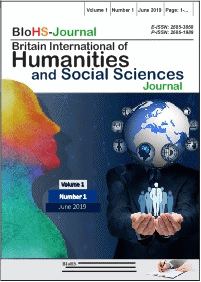The Urgency of the Maqāṣid Al-Syarī‘Ah in Reasoning Islamic Law
Abstract
This paper aims to present several theories about how important to understand maqāṣid al-syarī‘ah when someone wants to study a law in Islam, someone cannot be separated from that context. Maqāṣid al-syarī‘ah is a barometer or the main standard of consideration in the formulation of shari'ah with the aim of benefit the Ummah, and Islam consistently makes maqāṣid al-syarī‘ah in all its rules. The thinking of Ibn ‘Āsyūr about maqāṣid is built on this principle, that it’s imperative to accept the concept of ta‘līl. The theory of maqāṣid rests on three basic concepts; (a). Maqāṣids are sometimes qath‘ī and ḍannī (assumptive). (b). Maqāṣid ‘āmmah and khaṣṣhah (c). Al-maqām, al-istiqrā ’and distinguish between waṣilah and purpose in the application of fiqh law. Every phenomenon that has great potential for maslahah it can be stated to be included in the maqāṣid al-syarī‘ah. On the other hand the human need is not to know the maqāṣid al-syāri‘ itself, but to find a law for a new case that has no prescribed text. Ontology of maqāṣid al-syarī'at al-khāssah is also a value, because knowing the law for that case is complete with the text, now the needed for a new case, so the ontology of maqāṣid al-syarī'ah in this dimension is a transcendent value to refer when conducting tahqīqal-manāt.



.png)
_.gif)
















_.gif)














